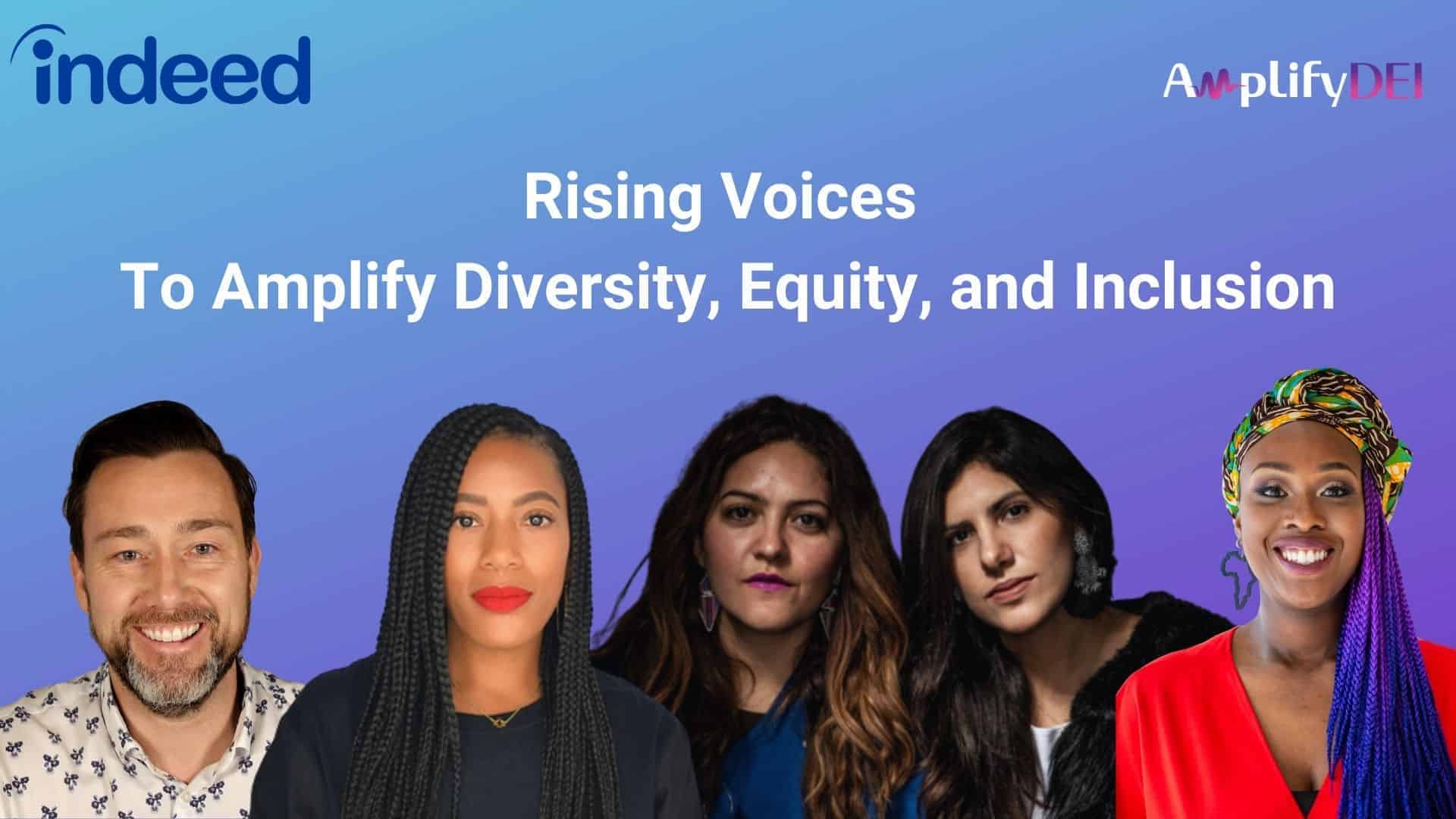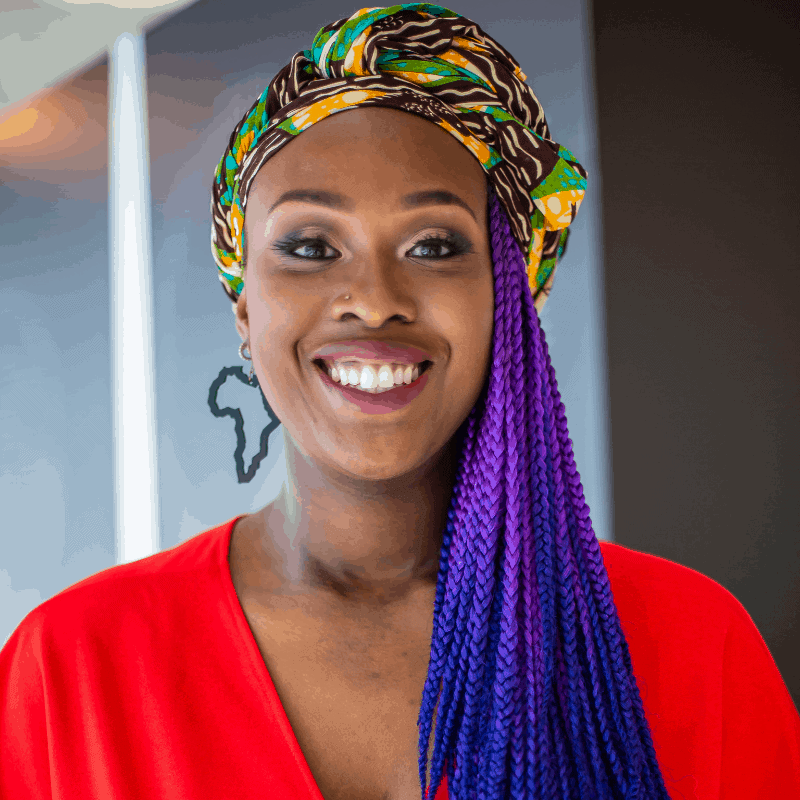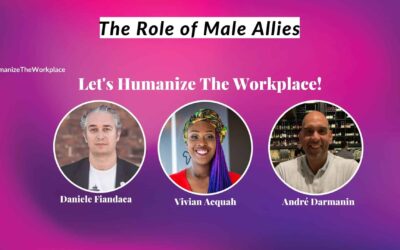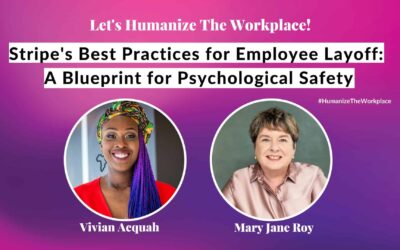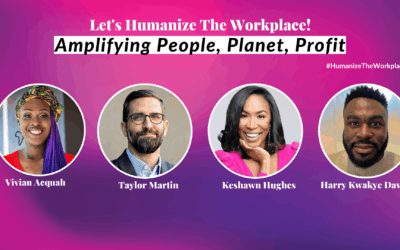In a world where a lot of companies are sharing their verbal inclusion commitments with posting black squares on social media and slick PR campaigns, it is hard to separate businesses that truly embrace diversity, equity, and inclusion (DEI) and those that are simply performative. The global employment search engine giant, Indeed, is one of those companies that is activating transformative DEI initiatives by taking real, tangible steps to move the needle on DEI and create a more inclusive work culture.
Walking The DEI Talk
Because of the industry they are in, Indeed is a leader who truly “walks the talk” and encourages other companies to focus on equitable hiring practices and embracing diversity in the workplace. Indeed released Rising Voices, a series of 10 short films that were made to amplify the stories and voices of BIPOC filmmakers. The films were shown at the Tribeca Film Festival in June 2021 in New York and received high praise and acclaim. The impact of telling these stories is sure to continue to make an impact both in people’s personal lives and in the film industry.
Rising Voices the authentic way
Rising Voices is a film initiative, yes, but there is so much more to it than just that. It was born out of Indeed’s true desire to amplify DEI and take bold steps towards a more inclusive culture, within the company and in society at large. This film intersects with important concepts like the power of storytelling, transformative DEI, and how we can measure progress.
To discuss the impact of Rising Voices and some of these intersecting ideas, Vivian Acquah, founder of Amplify DEI, sat down with Indeed employees, Aidan McLaughlin and Misty Gaither, and filmmakers Constanza and Doménica Castro from 271 Films. View the video of the full impactful conversation below.
Rising Voices: An overview
Rising Voices is a series of 10 short films from the “next generation of BIPOC filmmakers.” Indeed partnered with 271 Films to create them, and they debuted at the Tribeca Film Festival 2021 in New York.
One of the guiding principles of the project was:
“Talent is universal. Opportunity is not.”
BIPOC filmmakers and talent are still disproportionately underrepresented in Hollywood or the general film industry. Their voices are not heard, their stories are not told.
Rising Voices was the “brainchild” of Indeed’s CEO, Chris Hyams. Aidan McLaughlin is the Director of Global Branded Content and Storytelling at Indeed, and he shared how this idea came to life. He relates how Chris Hyams started with a simple question: What would it look like if Indeed took the cost of an average TV commercial—around $1 million—and made the money available to BIPOC creators, directors, and filmmakers to highlight the diversity and meaning of work?
Indeed partnered with Emmy® Award-winning writer, creator, and actor Lena Waithe and her company Hillman Grad Productions. From there, the vision of Rising Voices was born. It would be an opportunity to highlight BIPOC storytellers and filmmakers, providing them with high-quality resources and funds to bring their vision to reality. Indeed had an ambitious and tight timeline to make this happen. When Constanza and Doménica Castro—sisters and founders of 271 Films—were approached to take on the project, it was an easy “yes.” Click here to watch the conversation “The importance of representation for marginalized voices in the film industry” where Indeed CEO Chris Hyams interviews Constanza and Doménica Castro.
The power of collaboration
271 Films is a production company dedicated to putting story and creativity first. They knew that this project aligned with their values as a production company. Despite the tight timeline, Indeed was willing to put in significant funds to make the films come to life. Aidan McLaughlin shared that Indeed’s original vision was to create more films at a lower budget, but through the creative process with Lena Waithe, they realized that they needed to invest more money into fewer stories in order to achieve the high-quality impact that the films deserved.
“We grew together and we expanded, not only our professional knowledge and experience but also our humanity.
I think all these stories come to life and seeing where they were coming from, the places
that these stories were coming from, really enriched our lives in ways that we can’t really measure.”
-Doménica Castro
Rising Voices impacted more than just those filmmakers who were finally given their break into the industry. Between the 10 films, over 600 supporting actors and professionals were hired, most of them from the BIPOC community as well. Then, as the films debuted at the Tribeca Film Festival in June 2021, thousands of more people were able to watch and be inspired by the films.
The legacy of Rising Voices is yet to be fully seen. Constanza and Doménica Castro believe that, in some ways, this is a debut of BIPOC filmmakers, effectively telling Hollywood: “We’re ready.”
Showcasing authenticity and true representation
By showcasing authentic, real stories through film, it is showing the world that the tokenism and stereotyping that is prevalent in most films in the industry today are no longer acceptable or wanted. This is the start of a movement towards authenticity and true representation in film.
Misty Gaither, the Senior Director and Global Head of Diversity, Inclusion, and Belonging at Indeed, also believes that Rising Voices is a source of inspiration for other companies. The boldness of Indeed’s CEO to initiate this project is the activation of inclusion and belonging. Instead of taking empty, performative actions Indeed took real and concrete steps to amplify DEI. This set a standard and model for other companies to follow.
“You’re creating a new door for people to walk through, a door that most of the time was closed …
I’m excited for this generation, I’m excited for the next generation. Because growing up, I did not see that much representation in the Netherlands … The fact that you are sharing so many different stories where I feel connected, we all can be connected in that way.”
-Vivian Acquah
The power of storytelling
Rising Voices is a film initiative, so storytelling is at its core. While stories are used to delight and entertain, they go far beyond that. Storytelling is such an important part of our lives and is deeply connected to diversity, equity, and inclusion.
Storytelling has a way of making us feel less alone. Constanza and Doménica shared that they went into filmmaking for this reason. It was a way to connect with stories of like-minded people who aren’t represented in media and in cinema. Storytelling is a mirror of our society, and yet, so many people’s stories are not told.
Storytelling is a way to show the human side of people, showing them as complex individuals. We use stories to make sense of the world. The brain is not an information processor, it’s a story processor. Aidan McLaughlin shared how it is impossible, as humans, to understand everything from a 100% logical and rational mindset. We just can’t do it. Stories make it possible to understand the world around us and the people we interact with.
So, if we become aware of the stories we tell ourselves—and recognize that they are, in fact, stories instead of objective fact—we come to a place of responsibility for hearing more stories. We need to take the time to read stories, expose ourselves to other people, listen and understand, and practice empathy. In doing so, we get more than just our own story and start to understand the beautiful diversity around us.
Rising Voices was one avenue to amplify the stories of BIPOC creators. And yet, we don’t need to go watch more films or read more books, though those are great tools. It actually starts with listening to your colleagues and friends. It starts with your company’s hiring practices and company culture, ensuring that it is a safe, open, and inclusive space. To amplify DEI, we need to start with ourselves—what are we doing to ensure that we hear the diversity of stories around us?
“The reality is that what you perceive is just a story that has been created over time, through experience, and through the information that you’ve exposed yourself to. And so, if you start realizing that reality is just a story, then your job is to expose yourself to as many other stories as possible.”
-Aidan McLaughlin
Recognizing performative DEI
To amplify DEI, we need to listen to the diverse stories of people around us. But, too often, some companies will take performative actions instead of doing the real work of listening, learning, and honoring stories. Performative action is rampant in the filmmaking world, as Constanza and Doménica Castro shared. Companies pay lip service to social causes like Black Lives Matter or claim to be feminists, but then their behind-the-scenes actions go totally against it.
Today, any large company with a PR machine will post the “right” thing on social media or perfect the language of their communication to be inclusive and acceptable. But what difference does it really make to the lives that they claim to care about?
Indeed’s commitment to amplifying BIPOC filmmakers’ stories through Rising Voices is an example of real action. They invested money, time, and resources into providing filmmakers with the opportunity that they are often looked over for. In that process, they hired over 600 other BIPOC professionals and touched the lives of thousands of others through the films. This is a tangible action that will continue to impact people’s lives in a deep way through launching filmmaking careers and providing meaningful work.
Companies are not the only entity responsible for checking their performative action. It ultimately comes down to each individual to ask: Am I performing, or am I being real? A company or corporate culture can be created, yes, but it is created through the intentions and actions of individuals inside it. Each person needs to conduct those self-checks to really understand if they are posting something on Instagram, for example, because it’s expected, or because it might move the needle towards real action and impact that amplifies DEI.
One tangible way for individuals to ensure they are taking real action over performative action is by being an ally. Misty Gaither reminds us that “allyship is a verb—that means you have to do something.” This means talking with people and understanding where they need support and help. You don’t get to choose how to help, but you need to allow them to inform you how you should show up as an ally.
“Be authentic, be yourself. Because authenticity rises to the top and it’s been rising.”
-Constanza Castro
How to measure progress
Rising Voices was an initiative that amplified DEI through storytelling and is a model for companies who wish to take real action. The hope is that many more companies and corporations will be inspired to take their own action in this space. The question that comes up as companies incorporate DEI practices into their workplaces is, how do you measure success in moving the needle on diversity, equity, and inclusion?
Misty Gaither shares that this is still nascent work and is in the process of determining the best ways to measure success. However, there are some strong quantitative measures Indeed uses to measure success. Those metrics include the number of applicants, diversity of the applicant pool, promotion rates, and the rate of attrition. Collecting data and reporting it out for other companies is a foundational piece for making the job search and hiring process more equitable.
Indeed also uses qualitative measures like engagement surveys and pulse surveys. This helps capture some of the more nuanced ideas and opinions among employees and employers. On an individual level, HR and other professionals can receive training to start to learn how to read body language and glean information about what someone is experiencing, though they aren’t speaking about it.
Indeed published the “Work Happiness Report” to dig into what makes employees happy at work. They found that there was a hierarchy of needs in a place of work, so leaders need to look beyond things like salaries—still important, but not everything—and towards ideas of inclusion, belonging, and trust.
“It’s about increasing the representation. But it’s really understanding that sentiment and sense of belonging,
and continuing to evolve the measurements as we continue to learn more about this space.”
-Misty Gaither
Conclusion
Rising Voices is a series of 10 beautiful films by BIPOC creators. Films that spoke of the diverse experiences of humanity. Not only was the final outcome something to be celebrated, but the process to create and the lasting effects of this initiative are not to be forgotten.
BIPOC voices were amplified through this initiative. It opens a conversation about how we need to incorporate storytelling into our lives, truly listening to and exposing ourselves to diverse stories around us. When we do so, it leads to inspired, true action in a way that can move the needle on DEI. Indeed has taken a bold step in creating Rising Voices, setting a standard for other companies to take action instead of simple performative symbols.
More information about Rising Voices is available here, and about 271 Films here. The information in this article was adapted from a conversation between Indeed employees, Aidan McLaughlin and Misty Gaither, and filmmakers Constanza and Doménica Castro from 271 Films. It was moderated by Vivian Acquah, founder of the Amplify DEI Conference.
Indeed was the main sponsor of Amplify DEI in 2021. Rising Voices was made possible through Indeed’s partnership with Lena Waithe and Hillman Grad Productions, 271 Films, Ventureland, and PRETTYBIRD.
